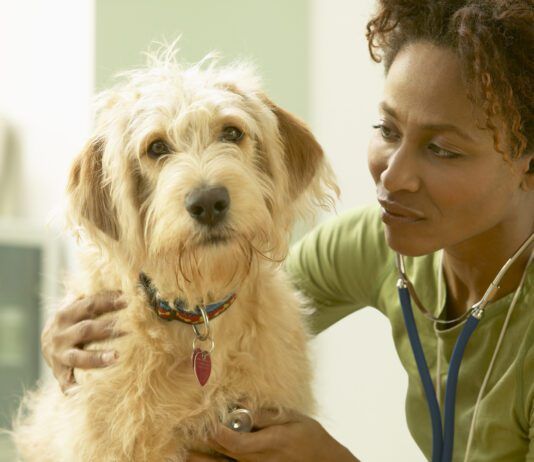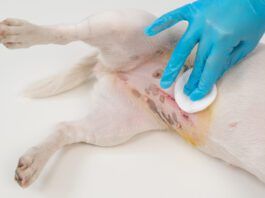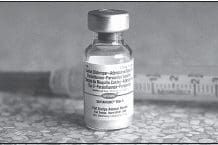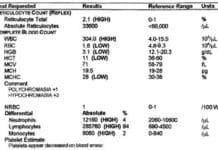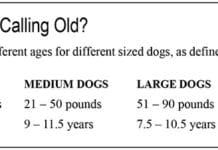How to Decipher Veterinary Code
What the heck do all those letters mean? They can seem as random as letters in a bowl of alphabet soup. But those acronyms pack a lot of information in just a spoonful. Here’s a guide to deciphering all the letters that you may see that have to do with veterinary professionals.
Use Caution When Filling Veterinary Prescriptions at Human Pharmacies
A few years ago, I was at my vet’s office when an older couple brought in a Chihuahua puppy who was very ill. Despite the staff’s best efforts, less than an hour later the pup was dead. The cause? A drug overdose, due to a prescription error made by a human pharmacy.
When to Seek Veterinary Care After Your Dog Has a Close Call at the...
Did Your Dog Have a Scary, Sinking Moment in the Water? “If the dog comes out and he’s fine, he’ll shake it off,” says Jules Benson, DVM. “You need to watch him for the next 24 to 48 hours, because that’s when aspiration pneumonia (caused by water going down into the main-stem bronchi) can occur. Especially if it’s water other than a pool, where there could be bacteria or protozoa in the water. If they aspirate any of that and it goes into the lungs, the bacteria spreads and multiplies.
Blood Transfusions for Dogs
Denise Mankin, DVM, was on duty late one night in a Des Moines, Iowa, emergency veterinary clinic when Yeller, a Labrador Retriever, was rushed in sporting a fresh wound to his back. Yeller had been shot after escaping from his rural home. After stabilizing Yeller with IV fluids, antibiotics, and pain medications, Mankin opened up the dog's abdomen to find blood filling his abdominal cavity. A bullet had perforated Yeller's small intestine in five different locations, and two of the sites were hemorrhaging profusely. Within moments, his blood pressure plummeted. As Mankin worked desperately to tie off the blood supply to his damaged bowel, Yeller went into cardiac arrest. Cardiac drugs restored Yeller's heart beat, and donor blood, having been warmed for transfusion, was pumped into him.
Less Stressful Veterinary Visits
A training friend suggested that I read Low Stress Handling, Restraint, and Behavior Modification of Dogs and Cats, by applied animal behaviorist Sophia Yin, DVM, MS. As an owner whose dogs have taken their fair share of visits to vet clinics, I really liked what I read. Dr. Yin's text takes a critical look at how our pets are often handled in veterinary clinics and it's not pretty, as you may have seen yourself. Fortunately, she also offers common sense advice on approaching veterinary care so as to make it as stress-free as possible for our pets. Popular myths abound that force is needed to get animals to behave. Instead, Dr. Yin focuses on how to modify behavior quickly in a veterinary setting using a systematic and positive approach. Her methods involve classical conditioning to change the pet's emotional state; setting up the veterinary environment to ensure the pet's comfort; teaching us how to handle animals with appropriate, rather than stronger, restraint; and how to behave around animals so as to avoid creating problems.
Shots Fired: Professional veterinary associations call for a reduced canine vaccination protocol
In the past decade, the veterinary profession’s overall attitude toward vaccination has evolved to a point that can be tentatively termed progressive. In 2002, the American Veterinary Medical Association issued a policy statement that urged veterinarians to “customize” vaccine protocols for individual patients, since there is “inadequate data to scientifically determine a single best protocol” for initial or repeat vaccinations. A year later, the prestigious American Animal Hospital Association (AAHA) released its landmark canine vaccination guidelines, which were updated in 2006.
Your Dog’s Anal Glands and Sacs
Oh, the smell! Anyone who's ever been in the same room when a frightened dog blows" her anal glands or a veterinarian manually expresses them will never forget the malodorous experience. It's wise for dog owners to be aware of the problems that can arise with these glands
Conventional and Holistic Veterinarians Working Together
Every day the already dazzling array of options for caring for your dog grows even more. There are myriad modalities in the realm of holistic care, including complementary and alternative options, as well as conventional veterinary medicine, with its low- and high-tech diagnostic and treatment procedures. Which way do you go when your dog has a health concern?
What’s Your Dog’s Complete Blood Count (CBC) Diagnosis?
as it is expressed here) and hemoglobin (HGB) indicate a mild anemia. Based on this
How to Best Utilize Your Dog’s Next Blood Test
Why a blood test is an integral part of your dog’s requisite annual wellness exam, and how to get the most out of the blood chemistry test results. Most of the dog’s organ systems can be targeted by one chemical analysis or another, and with proper interpretation of one (or a combination of) these analyses, I can, at least in part, assess the dog’s current health/disease status. From this interpretation then, we can often derive a treatment regime, whether it is based on Western or alternative medicines. Isn’t science wonderful?
Taking Steps to Making Vet Visits Less Stressful for Your Pup
Let’s face it: Most dogs aren’t crazy about going to the vet. And why should they be? After all, vet visits are stressful at best. They often mean a new environment, slippery floors, and even more slippery exam tables. Vet offices are full of funny smells, scary sounds, strange people, and unknown animals. Plus, the poking and prodding they are subjected to can be uncomfortable and sometimes even painful. It may be overwhelming for even the most easygoing dog.
The Importance of Blood Tests for Your Dog
Your six-month-old puppy is scheduled to be spayed tomorrow. When you call to confirm your appointment, and review the veterinarian's estimate of charges with the receptionist, you learn that you will be charged $60 for a blood panel. Is this necessary? Blood is composed of different types of cells, and the status and percentage of type of cell present in the mixture communicates important facts. There are a variety of ways to examine blood; each examination method reveals specific information. A morphologic inspection consists of looking at the shape of the blood cells under a microscope.


